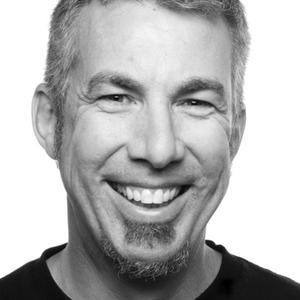By Kimberly Kohatsu, Managing Editor for the Menuism Dining Blog
 A shining example of corporate social responsibility, Pangeo Coffee uses proceeds from its online coffee sales to fund development work in and around coffee-growing villages of Africa, Asia, and the Middle East. Working with Global Hope Network International, Pangeo aims to elevate these villages out of severe poverty by teaching low-cost, low-tech, and locally available ways to get clean water, grow food, reduce disease, and build schools, all with an emphasis on self-sustainment. I spoke with Pangeo's CEO, Jeff Power, about his work.
A shining example of corporate social responsibility, Pangeo Coffee uses proceeds from its online coffee sales to fund development work in and around coffee-growing villages of Africa, Asia, and the Middle East. Working with Global Hope Network International, Pangeo aims to elevate these villages out of severe poverty by teaching low-cost, low-tech, and locally available ways to get clean water, grow food, reduce disease, and build schools, all with an emphasis on self-sustainment. I spoke with Pangeo's CEO, Jeff Power, about his work.
How did Pangeo Coffee begin?
In early 2011, as we prepared to go back to Ethiopia to help our villages near Harrar (one of the premier coffee areas of the world), a friend suggested we pre-sell bags of Harrar coffee to raise money for our villages and our trip, then bring those bags back to the supporters. With just one email, 200 bags were ordered. People loved the idea of drinking amazing coffee that directly helped humanitarian work to poor villages. So the idea for Pangeo Coffee was born on the spot. (There was also an incident at the Addis Ababa airport, but you'll have to go to our website to learn about that).
What kinds of projects do the proceeds benefit?
All our profits go to supporting village development workers and village development projects. We help villages in all five sectors of development -- clean water, food production, health/wellness, income generation and education. Every bag of Pangeo Coffee even has an individual picture on it from a village we're helping where the coffee was grown! I take most of the pictures myself.
What is life like for the coffee growers you've worked with?
It's farming. And farmers worldwide have a tough challenge. Thanks to the advocacy efforts of many people, their income is truly improving. Most coffee farmers are still at the lower end of the economic spectrum, but they're no longer the world's poorest. Still, as people are willing to pay just a bit more for their coffee, those farmers are increasingly able to feed, clothe, educate and pay for some healthcare for their children.
Why is it important that coffee be ethically sourced? What abuses are possible?
Just like with any largely and widely produced product, there's a whole system involving farmers, co-op leaders, importers and exporters, government, commodities markets, roasters and consumers. Some "direct" approaches can bypass some of those links in the chain, but in the end, you have to get agreement of important values, and then accountability, that everyone willingly follows. That's a big task!
How would you describe the taste of Pangeo Coffees versus store-bought coffees?
Coffee has followed a similar story to wine. In recent years, people have realized there's truly a difference between cheap beans and good ones, and even amazing ones. So they pay a bit more for the good ones (or a lot for the amazing ones), and the taste difference is clear. We'd like to think we're in the good-to-amazing category. And beans from the areas we serve keep winning international awards!
In your opinion, what have been the greatest effects (both good and bad) of large coffee chains like Starbucks?
Good -- Starbucks and others like them introduced what's often called the "second wave" of coffee, where people began to realize that good coffee is truly different from the post-Korean-war "burnt grounds in a can" era. They were pioneers, and they continue to be.
Bad -- once you deal in massive volumes, even with the best intentions, you always have inherent complexities in truly integrating the tricky issues of politics, profits and people. You just can't treat people as individuals the same as when you were small. Power is now always in play.
Since starting Pangeo Coffee, what has surprised you the most?
The kindness of people, and the power of the internet.
If you could impart one kernel of wisdom to our readers, what would it be?
Do the small things in life right. Love people well. The rest will take care of itself. Also... life is too short for bad coffee.
Got questions for Jeff? Tweet him @JeffPower!
Related Links from the Menuism Restaurant Blog:
• Interview: Debbie Thomas of Thomas Hill Organics
• Loose Tea 101
• A Brief History of Indian Chai
Kimberly Kohatsu is the Managing Editor of the Menuism Dining Blog, the educational arm of Menuism.com, a popular website where a passionate community of foodies rate their favorite dishes and comment on restaurants they've visited. Kim is also a freelance writer and marketing consultant, whose recent dining adventures revolve around ramen, cheeseburgers, and fried chicken.